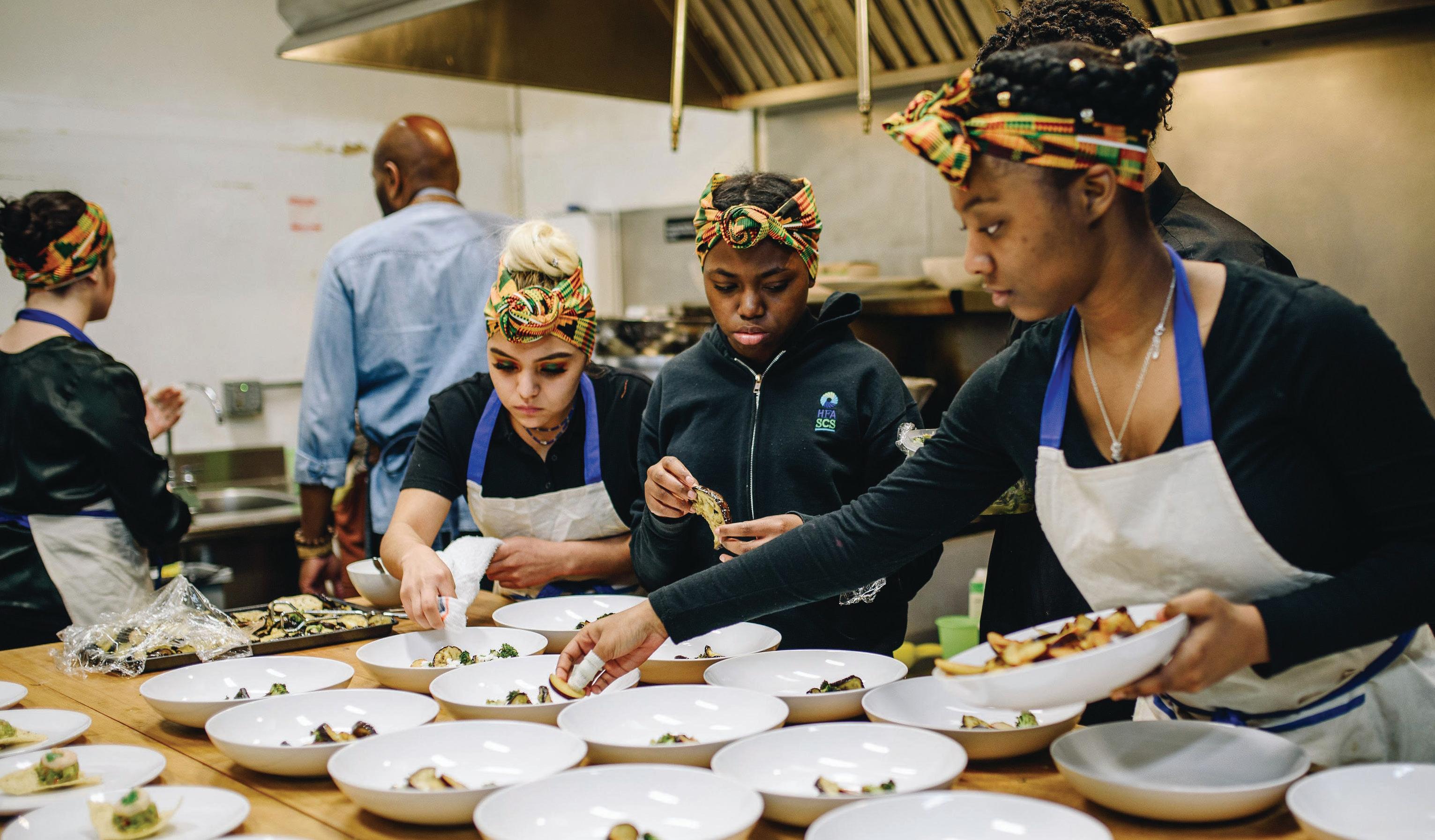
2 minute read
Michigan Food Hubs Making the Connection
REBECCA HENDERSON, West Michigan Local Food Coordinator

ValleyHUB, part of the Food Innovation Center at Kalamazoo Community College.
Behind the scenes of grocery stores and supermarkets, food hubs are pivotal in local food distribution throughout Michigan.
Managing the aggregation, distribution, and marketing of local food products, food hubs move products from the producer to the purchaser on a regional scale.
The Michigan Food Hub Network fills a leading role in the collaboration of 10 active hubs across the state. Noel Bielaczyc is the Value Chain Specialist for the Center for Regional Food Systems of Michigan State University, and facilitates within the network to increase the distribution of local food across the state.
“Every hub brings different strengths and capabilities to the network,” says Bielaczyc. “Together we’re working on shared projects that create win-win solutions.” One of their main focuses is to disseminate surplus product throughout the network by sourcing items from other hubs to fill gaps. Bielaczyc says, “Each food hub is in this work together, therefore there’s not a competition between them.”
In West Michigan, food hubs like the Muskegon Food Hub and the ValleyHub in Kalamazoo are growing healthy, local food systems in their community. In the end, the buyer knows exactly where their food comes from, and the farmer profits more than they would through a mainstream supply chain.
Started in 2017, the Muskegon Food Hub connects local producers to the restaurants, schools, the Age Well meals on wheels program, and other institutions in Muskegon County. Food Hub Manager, Rose Spickler, shares that the biggest struggle for them is transportation. “Refrigerated trucks are expensive, and we’re working on programs to be able to get the food from the farm to the buyer.” Spickler says institutions’ demand for locally produced foods is increasing and the hubs are growing to meet this demand.
Also established in 2017, ValleyHUB is a component of the Food Innovation Center at Kalamazoo Valley Community College. “Our #1 product is educational opportunities for food jobs,” says Rosie Florian, the ValleyHUB Outreach and Marketing Coordinator. “Our goal is to reinforce the idea that there are more jobs in the local food industry than chefs and farmers.” The hub operates an urban farm, processing facility, and education center. Students of all ages use the farm and food hub as classrooms to experience the wide range of food-related jobs within the fields of agriculture, culinary arts, and supply chain management. On the other end of their work, the processing system helps larger institutions, like hospitals and schools, drastically cut down on labor by providing cleaned and prepared produce.
Collaboration within the Michigan Food Hub Network is strong, as they stabilize the logistics to streamline purchasing local products statewide. Food hubs are integral to our local food system and reinforce the necessary connection between farmers and buyers.










